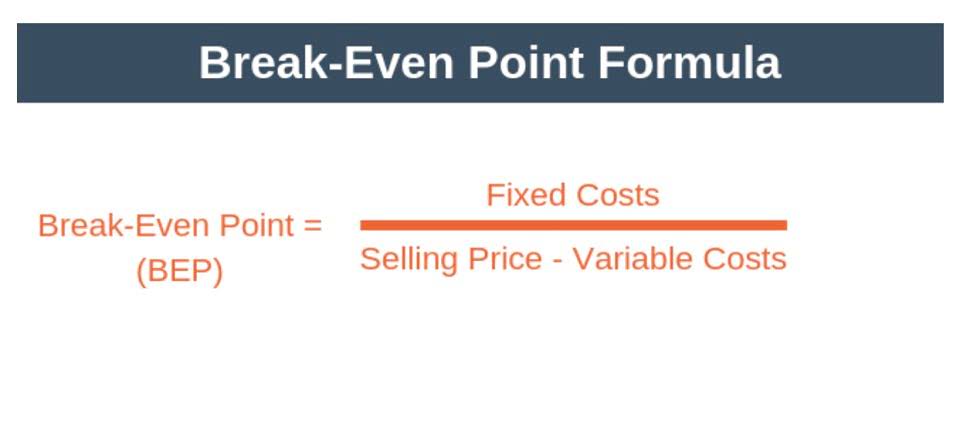
Law firms can use double-entry bookkeeping as a way to better monitor the financial health of a company. Poor accounting practices, such as struggling to track billable hours or sending out invoices late, can lead to money leakage. With Clio Accounting you can generate all sorts of financial reports to help you make data-driven decisions for the growth of your firm.
- With this guide, you’ll understand key financial concepts, financial levers affecting your business, best practices for billing and collecting money, and how to manage and outsource financial work.
- Double-entry accounting is a method that records each financial transaction with two entries, using debits and credits to ensure accuracy.
- Our intuitive software automates the busywork with powerful tools and features designed to help you simplify your financial management and make informed business decisions.
- You can offer insights on compliance and efficiency improvements and guide attorneys on best practices in financial management.
- The tax implications of this method also allow your firm to pay tax on income once it’s received and in the bank.
- A well-planned budget is the backbone of any successful firm’s cash flow management strategy.
Understand Legal Accounting Basics
- Legal accounting also goes one step further by taking a high-level look at a law firm’s financial health by forecasting, creating budgets, and identifying areas for growth.
- To streamline tasks even more, consider using LawPay’s payment integration with MyCase to easily combine your payment platform with MyCase’s end-to-end suite of features for law firms.
- It is easy to make legal accounting mistakes when working in law with trust accounts.
- Switching from outdated tools like PCLaw or cumbersome manual Excel sheets can be daunting due to the data transfer process.
- You save time and reduce the risk of error meeting client, firm, bar association, and law society obligations.
- Finances are one of the most critical areas of your law firm, and you should be involved with them.
Firms should also consider consulting with tax professionals to determine the most suitable accounting method for their practice, whether the accrual or cash-based approach. Regular attention to your law firm’s bookkeeping will also make tax unearned revenue preparation and compliance much easier. When your records are up-to-date and accurate, you can avoid the stress of last-minute scrambling and make more informed business decisions.
- Although similar to traditional bookkeeping, attorney bookkeeping is specifically for law firms and attorneys and has field-related caveats.
- Get free guides, articles, tools and calculators to help you navigate the financial side of your business with ease.
- Knowledge of basic accounting concepts enables law firms to evaluate a practice from a business management perspective and gauge general performance to identify areas of improvement.
- They either claim too much and risk getting fined, or they are too careful and leave money on the table.
- Seeking the help of professionals in legal accounting is crucial to avoid costly errors and focus on growing the business effectively.
- Avoid hunting down receipts, manually logging transactions, and reconciling accounts across multiple platforms or papers with cloud-based accounting software built for attorneys.
Financial reporting to find opportunities

As illustrated in the picture below, the expenses are entered and billed out, resulting in a debit and credit that will clear each other out and reconcile. If any items remain in the account, they must be brought to the attorney’s attention to be addressed, either by billing the client for the remaining expenses or by writing them down on the books as a firm expense. For soft costs, those expenses not precisely targeted to one client, like postage and copying, can be used at the law firm for both the law firm’s operation and clients. In the example of postage, the expense of the book, the postage expense, and then when it’s billed back to the client, it is booked into a billable expense income account.
- Mismanagement of trust accounts in law firms can result in severe consequences, including ethical violations and legal issues.
- If any items remain in the account, they must be brought to the attorney’s attention to be addressed, either by billing the client for the remaining expenses or by writing them down on the books as a firm expense.
- For more on avoiding financial pitfalls, check out our insights on the importance of financial statement and preparation by visiting our detailed guide on common financial mistakes made by law firms without a CPA.
- Always maintain detailed records of every transaction into and out of the Interests on Lawyers Trust Accounts (IOLTA) to ensure compliance with regulatory requirements and to safeguard against potential penalties.
- However, with online legal accounting software, it’s easy to quickly produce reports that give you the insights you need—whether you need reports on sales, expenses, taxes, or other metrics.
Common Bookkeeping Mistakes and How to Avoid Them

Double-entry accounting is a method that records each financial transaction with two entries, using debits and credits to ensure accuracy. This approach helps in detecting errors and ensuring the balance sheet remains balanced. Today’s accounting software has revolutionized the way businesses do what they do. For attorneys, law firm bookkeeping this means a more streamlined path toward accomplishing accounting, bookkeeping, and even record-keeping. In the legal profession, precision, transparency, and accountability matter. The right software doesn’t just support your firm’s financial health—it safeguards your reputation and secures your future.
Our customized bookkeeping services make sure that your financial records are kept in perfect shape. You can choose a plan that works for your business, whether it’s daily, weekly, or monthly. We use top-of-the-line tools like QuickBooks to improve your processes so you can be sure that your books are always in order. As an attorney, you may be aware of state bar requirements for trust accounts, but that doesn’t prevent you make mistakes. The most common mistakes are putting funds in the wrong account, accidentally or intentionally withdrawing funds, fail to report monthly, and so on.

Whether intentional or through neglect, violations of compliance regulations—like mishandling client funds—can lead to serious repercussions. Some providers will allow you to set up recurring payments for your clients that will be automatically Medical Billing Process debited based on selections your clients make. Why Personal Injury Law Firms Need Both a CPA and Financial AdvisorIntroductionAs a personal injury lawyer, you’re n… If you’re curious about avoiding common financial pitfalls as you navigate this digital transformation journey, our article on Top 10 Financial Mistakes Law Firms Make Without a CPA might pique your interest.


Add Comment